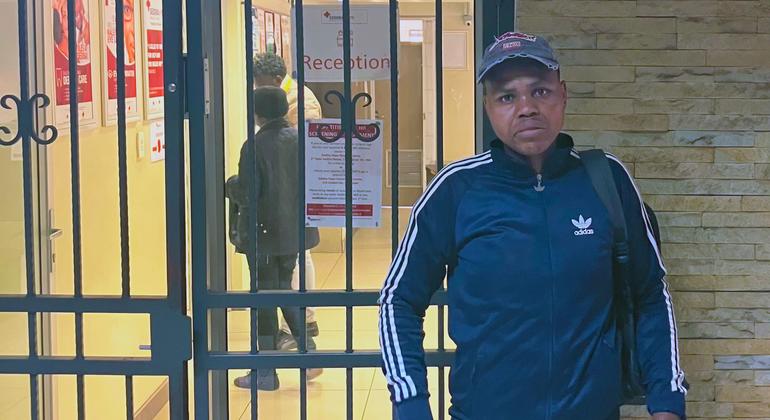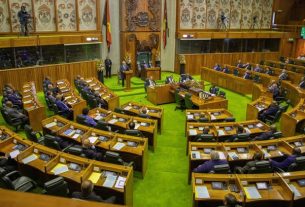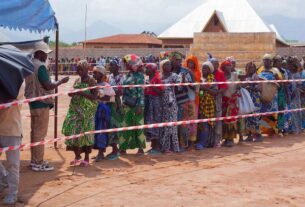Koketso Mukubani now works as a Community Linkage Officer for the UN Office on Drugs and Crime-supported South African Network of People who use Drugs.
He spoke to UN News ahead of World Hepatitis Day on 28 July about receiving his diagnosis during a needle exchange outreach programmme, in which people who use drugs can get clean and unused needles.
Koketso Mukubani collects a methadone treatment at Sediba Hope.
“My mum died from HIV when I was 14. She was a single parent. That’s when I started using. It became too much for me. It was too much for my grandmother, too.
After my mother died, in the span of a week we also lost my grandfather. My grandmother became an alcoholic and sold our house because she couldn’t live with the memories.
At the time I was smoking weed because I was chubby and felt body-shamed a lot. I thought weed would help me to lose weight. But after my mother died, I started using more to cope, then drinking heavily, then I graduated to heroin and anything I could get my hands on.
My life spiraled out of control. We moved to rural areas, and I couldn’t adjust. So, I fled and went to the streets. I was 20 years old.
‘I couldn’t hold back my tears’
I found out that I was hepatitis C positive in this building, the Sediba Hope Medical Center in Tshwane, just outside Pretoria. In 2017, I was accessing the needle exchange outreach programme from peers at Marabastad.
They told me about an initiative at Sediba Hope whereby they’d be taking our blood for which we would be paid.
At the medical center, I didn’t know what my blood was going to be used for. The motivation for me was money for the fix! So, I went. They explained they’d run an HIV test and screening for hepatitis B and C.
I got the shock of my life when I was told I was positive for hep C. I didn’t know what hepatitis was and was scared for my life. They say men don’t cry but I couldn’t hold back my tears.
The healthcare provider was compassionate. She calmed me down, explained what hepatitis was and that it’s manageable with a healthy lifestyle.
I blamed myself. I got a disease through my reckless drug use.
The prevalence of the disease among people who use drugs was 80 per cent then.
I went back to the streets and kept using, but the diagnosis was in the back of my mind.
Getting in control
I wanted to get in control of my drug addiction, in better control of my health. I joined the Community Oriented Substance Use Programme at the University of Pretoria, where I started opioid substitution treatment (OST).
I started taking methadone [a medication used to treat opioid use disorder]. They also took my blood to check for liver functionality.
I didn’t miss a single day. After completion of the 12-week programme, they took my blood again; I was clear of the virus. I also took the vaccine for hepatitis B.
I was so jubilant and relieved because the programme had a family reintegration element. I started having a relationship with my loved ones again, but because of the stigma I did not disclose my medical status.
My family found out when I was virus free. I’m happy they did when I was clean. Because the only thing I feared was the stigma. It has the potential to trigger me so much that I could go back to the streets or using even more than before.
Inclusive approach
We need a comprehensive harm reduction package, readily available and easily accessible [in South Africa]. We need to scale-up needle exchange outreach programmes, opioid substitution treatments, and testing, too.
We need to include people who use drugs in the planning and implementation of all initiatives that are associated with health, that are going to be delivered for them.
They are so very important in debunking the myths and identifying beneficiaries for treatment. They should be employed for demand reduction work, for the campaigns, distributing the needles, etc.
We [people who use drugs] do volunteer work, but it is real work. We deserve the same compensation as medical staff who do the same work.”




